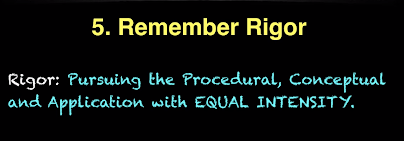On Feedback...

Consider, for example, how students use grades. They see them as a reflection of their abilities, and sometimes more deeply as a reflection of their ability to learn at all. Grades shape their self-efficacy in particular skills (“I’m not good at math”), but they also shape learners beliefs about their intelligence (“I’m not good at learning”), and eventually, they can begin to shape their identities (“I’m not a very smart person”). Ko, A. J. (2019, March 16). Grading is ineffective, harmful, and unjust — let’s stop doing it . Medium; Bits and Behavior. https://medium.com/bits-and-behavior/grading-is-ineffective-harmful-and-unjust-lets-stop-doing-it-52d2ef8ffc47 I have experienced the truth in this argument as both a teacher, student, and parent. And while it does tie back to individual mindset, that's not what I want to talk about here. I want to talk about the crazy amount of time that many of us put into grading assignments (many have told me tails of how they spend their h
